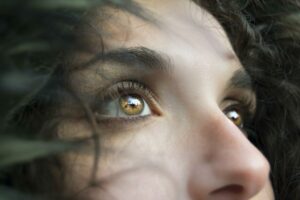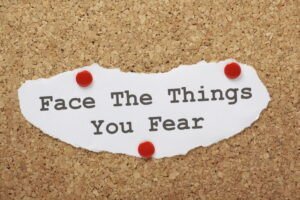It’s no secret that OCD can be a debilitating disorder. For those with sensorimotor Obsessive Compulsive Disorder, the symptoms can be especially hard to manage. Fortunately, there are treatments available that can help you cope with sensorimotor OCD and live a better life. In this blog post, we will explore the different types of treatment for Sensorimotor OCD, including cognitive-behavioral therapy, medication, and lifestyle changes. We will also look at how these treatments can help reduce symptoms and improve quality of life.
Contents
What Is Sensorimotor OCD?

Sensorimotor OCD is a type of OCD that is characterized by intrusive thoughts and compulsions related to movement, sensation, and body-related concerns. People with sensorimotor OCD may be obsessed with the fear of harming themselves or others through their movements, or they may be compulsively engaged in activities such as checking, repeating, or touching to relieve their anxiety.
The causes of sensorimotor OCD are not fully understood, but genetic and environmental factors may play a role. The impacts of sensorimotor OCD can vary greatly and can include difficulty concentrating, avoiding certain activities or situations, social isolation, and poor performance in school or at work. Treatment for sensorimotor OCD typically involves a combination of cognitive-behavioral therapy (CBT), medications, and lifestyle changes.
Treatment of Sensorimotor OCD
The impacts of Sensorimotor OCD can be treated with a combination of psychotherapy and medications. The goal of psychotherapy is to help individuals learn how to identify, recognize, and reduce their symptoms.
Some of the treatment methods are:
Cognitive Behavioral Therapy
Cognitive behavioral therapy (CBT) is a type of psychotherapy that helps people change their thinking and behavior. CBT is based on the idea that our thoughts, feelings, and behaviors are all connected. CBT can be used to treat a wide variety of mental health conditions, including OCD.
Sensorimotor OCD is a type of OCD that involves repetitive, intrusive thoughts or images (obsessions) that cause anxiety or distress. People with sensorimotor OCD often engage in repetitive behaviors (compulsions) in an attempt to relieve their anxiety. These compulsions can take up a lot of time and interfere with daily life.
Your CBT therapist will work with you to develop a specific treatment plan that meets your needs. Together, you will set goals for treatment and create a step-by-step plan for exposure and response prevention. Your therapist will also provide support and guidance as you work through treatment.
Exposure and Response Prevention

Exposure and Response Prevention (ERP) is the most effective evidence-based treatment for OCD. ERP involves gradually exposing yourself to the things that trigger your OCD while learning how to resist the urge to do your compulsions.
Compulsions are the behaviors or mental acts that you feel you have to do to relieve anxiety. For example, if you’re afraid of germs, your compulsion might be washing your hands over and over again. The key to ERP is learning how to tolerate the anxiety that comes up without doing your compulsions.
To make this happen, you work with a therapist to come up with a list of activities (exposures) that provoke your OCD symptoms. Then, you practice these activities with your therapist present until the urge to do your compulsion goes away. After that, you practice on your own at home until you can do the activity without any anxiety.
Acceptance and Commitment Therapy (ACT)
Another form of therapy that has been gaining traction in recent years is known as Acceptance and Commitment Therapy (ACT). This form of therapy encourages people to accept their experiences without judgment and to focus on living a value-driven life. It also helps people to recognize their thoughts and feelings without allowing them to control or dictate their behavior.
The goal of ACT is to help individuals become more mindful, flexible, and present in the moment so they can make choices based on what matters most to them. Through this type of therapy, individuals learn how to create meaningful change in their lives by committing to values-based action.
Medications
Many types of medications can be used to treat OCD. The most common type of medication is a selective serotonin reuptake inhibitor (SSRI). SSRIs are a type of antidepressant that can help to increase levels of serotonin in the brain. Other types of medications that are effective in treating OCD include tricyclic antidepressants, antipsychotics, and mood stabilizers.
Some of these medications make it a bit difficult to concentrate or cause feelings of sleepiness. Therefore, people should discuss any potential side effects with their doctor before taking these medications. Additionally, it is important to note that some individuals may experience an increase in symptoms when taking a particular medication. If this occurs, it is important to contact a medical professional immediately.
Other Treatments

Other than therapy and medications, there are a few other treatments for depression that can be beneficial. These include:
- Light therapy – is often used in the winter months to combat Seasonal Affective Disorder (SAD)
- Exercise – regular physical activity is known to reduce symptoms of depression and improve mood
- Mindfulness-based therapies – such as yoga, meditation, or tai chi
- Acupuncture – an ancient Chinese medical practice involving the insertion of needles into various points on the body to relieve pain and stress
- Dietary changes – increasing intake of omega-3 fatty acids, B vitamins, and fiber have all been linked to a reduction in symptoms of depression
- Herbal supplements – herbs such as St. John’s Wort, lavender, and chamomile are popular natural remedies for depression and anxiety.
What to Expect from Treatment?
There are many different types of treatment available for Sensorimotor OCD, and the most effective approach depends on the individual. The expectations of treatment will vary based on the type of therapy chosen and the severity of the condition. Generally speaking, treatment aims to reduce symptoms, increase insight and understanding into how OCD affects each person, and develop skills and strategies that can help manage obsessions and compulsions.
Some of these expectations can be:
- Make lifestyle modifications to reduce anxiety and manage triggers
- Developing healthy coping strategies, such as mindfulness and relaxation techniques
- Cognitive Behavioral Therapy (CBT) to challenge irrational thoughts and behaviors
- Exposure and Response Prevention (ERP) to gradually confront fears and learn how to resist compulsions
- Medication to reduce obsessions or treat associated conditions, such as depression or anxiety
- Family therapy to address any issues within the family that could be contributing to the OCD
Treatment is a long-term process, but with patience, dedication, and hard work, a person can make progress toward managing their symptoms.
Conclusion
Sensorimotor OCD is a type of anxiety disorder that requires special treatment. While medications and therapy can help manage the symptoms, it’s important to find an appropriate form of treatment for your individual needs. Cognitive Behavioral Therapy, Exposure and Response Prevention, Acceptance and Commitment Therapy, Dialectical Behavior Therapy, Mindfulness-Based Stress Reduction, and Group Counseling are all viable options for treating sensorimotor OCD. With the right combination of therapies tailored to your specific needs, you can reduce or even eliminate your symptoms so that you can live a more fulfilling life.
For more information and guidance, please contact MantraCare. OCD is a mental health disorder characterized by obsessions and compulsions. If you have any queries regarding Online OCD Counseling experienced therapists at MantraCare can help: Book a trial OCD therapy session


